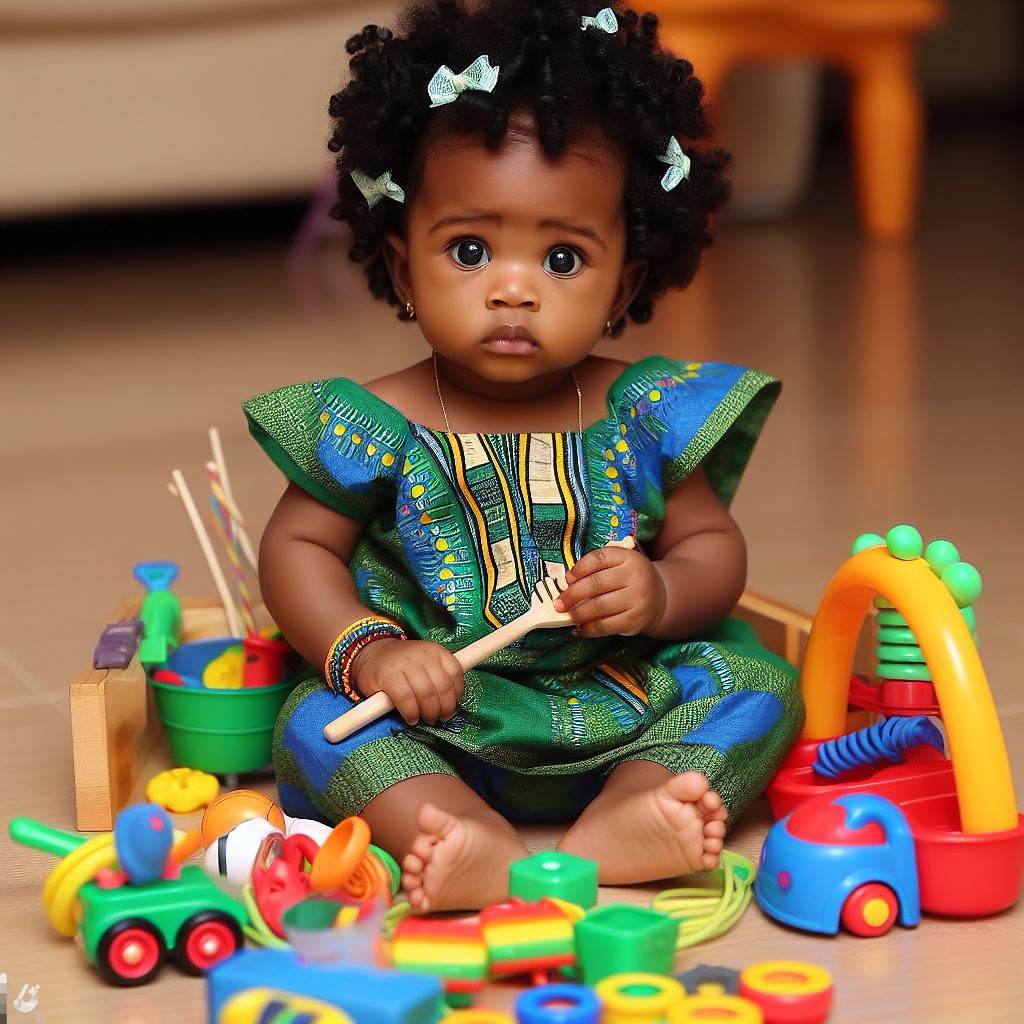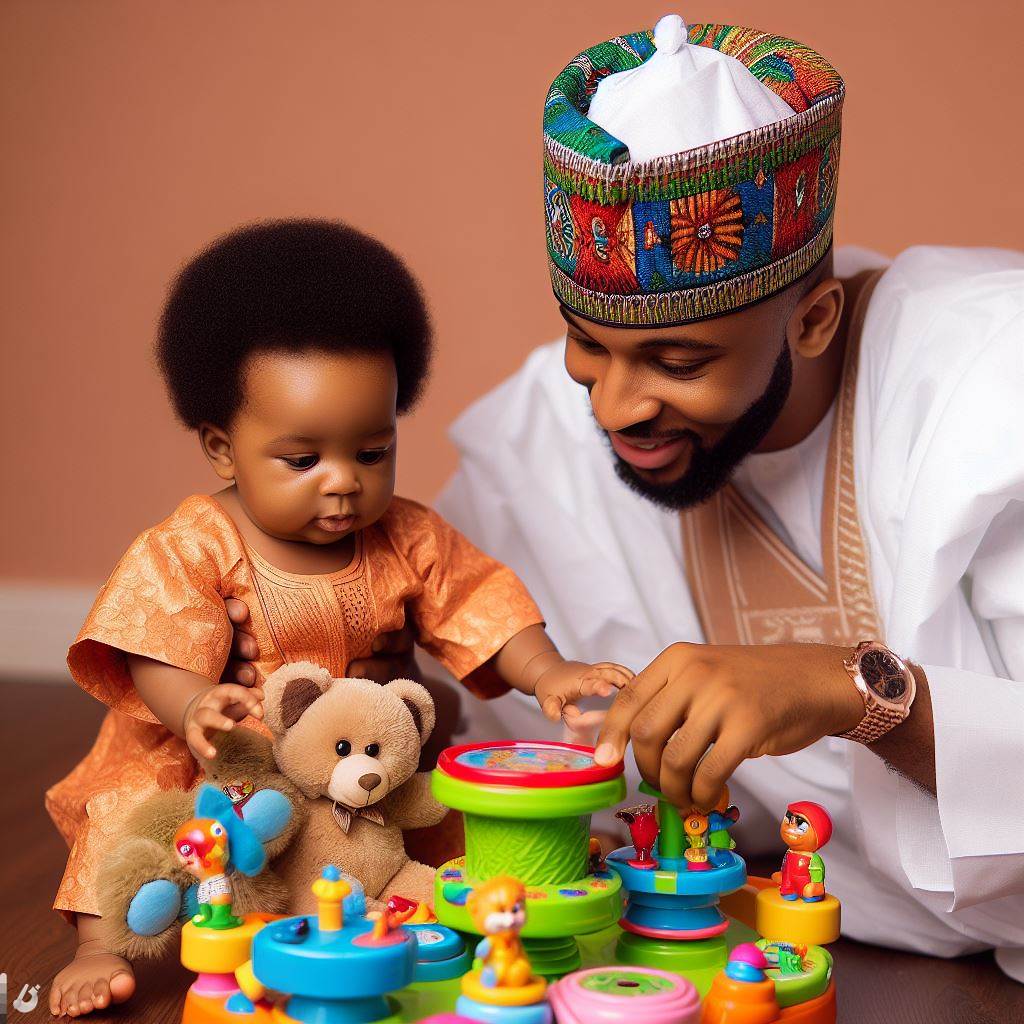Introduction
In the enchanting journey of parenting, understanding the intricacies of a baby’s brain development is crucial.
Baby brain development refers to the intricate process by which a newborn’s brain forms connections, establishes neural pathways, and grows in complexity.
This process begins in utero and continues through the early years of life, setting the foundation for future cognitive, emotional, and social capacities.
Nurturing a baby’s brain development is akin to tending to a delicate garden.
The experiences, stimuli, and care provided during this critical phase shape the architecture of the brain, influencing a child’s abilities and potential.
The early years are a period of remarkable plasticity, where the brain is highly responsive to environmental stimuli.
This plasticity underscores the significance of intentional and positive interactions to foster optimal development.
Music, with its rhythmic patterns and melodic tones, serves as a powerful catalyst in stimulating a baby’s senses.
From the gentle lullabies that soothe a newborn to the lively tunes that spark curiosity in an infant, exposure to varied musical experiences enhances auditory discrimination and cognitive growth.
Studies suggest that musical engagement activates multiple regions of the brain, fostering connections that contribute to enhanced language acquisition and mathematical reasoning.
Beyond cognitive benefits, music plays a pivotal role in forging emotional connections.
Shared musical experiences between caregivers and babies create a unique bond, contributing to the development of trust and emotional regulation.
The emotional resonance of music provides a platform for babies to express and understand feelings, laying the groundwork for healthy social interactions in later years.
In the end, the journey of baby brain development is a symphony of experiences, with music playing a harmonious role.
By recognizing the importance of nurturing a baby’s cognitive, emotional, and social capacities, caregivers can actively contribute to the flourishing of their child’s potential.
Parenting Made Just for You
Get personalized Parenting Solutions tailored to your child’s needs. Transform your parenting journey with expert guidance in 1-3 days.
Get StartedMusic, as a versatile and delightful tool, adds a melodic dimension to this developmental narrative, turning each note into a step towards a brighter, more harmonious future.
Read: Top Baby Development Myths Debunked for Nigerians
The Impact of Music on Baby Brain Development
Music as a sensory stimulus
Music has a powerful impact on baby brain development. From a sensory perspective, music serves as a rich stimulus that engages multiple senses: hearing, rhythm, and movement.
By exposing babies to music, their brains receive sensory stimulation that is crucial for proper development.
Language and cognitive development
Language development is greatly influenced by music. Babies exposed to music show enhanced language acquisition skills.
The rhythm, melody, and repetition in music help babies recognize patterns and learn the sounds and structure of language.
Through exposure to music, babies develop language and cognitive skills more effectively.
Emotional development
Music also plays a pivotal role in emotional development. It has the ability to evoke various emotions in babies, such as happiness, excitement, or calmness.
When babies experience different emotions through music, it positively impacts their emotional development.
Furthermore, emotions play a significant role in brain wiring, and music helps in establishing emotional connections within the brain.
Motor skills development
In terms of motor skills development, music has a profound influence.
The rhythm and melody in music can facilitate the development of motor skills in babies.
When they engage with music, such as clapping their hands or dancing to the beat, they enhance their coordination and improve their spatial awareness.
Music activities provide a fun and interactive way for babies to develop their motor skills.
Unveil the Perfect Name that Tells Your Family's Story
Let us help you find a name that embodies your family's values, traditions, and dreams. Our personalized consultation weaves cultural insights to create a name that's uniquely yours.
Get StartedOverall, music has a multitude of benefits for baby brain development.
It serves as a sensory stimulus, engaging multiple senses and providing necessary stimulation for brain growth.
Music supports language acquisition and cognitive development by exposing babies to patterns, sounds, and structure.
Emotionally, music evokes feelings, contributing to the wiring of the baby’s brain.
Moreover, music enhances motor skills through rhythm and movement, improving coordination and spatial awareness.
Parents and caregivers can incorporate music into everyday activities to support their baby’s brain development.
Singing lullabies, playing musical instruments, and dancing together are all effective ways to stimulate the baby’s brain through music.
By embracing the power of music, we can provide babies with a rich environment that nurtures their brain development and overall well-being.
Read: Creating a Stimulating Home Environment for Babies
Music Activities for Baby Brain Development
As parents, we play a crucial role in fostering our baby’s brain development.
One highly effective method is through music. Music has been proven to have a significant impact on the brain, especially in babies.
It stimulates various areas of the brain responsible for language, memory, emotion, and social interaction.
In this section, we will explore the recommended music activities for baby brain development.
Singing to babies
Singing lullabies and nursery rhymes is an age-old tradition that brings immense benefits to babies.
Research suggests that when we sing to our babies, it helps in language acquisition and strengthens the bond between parent and child.
The simple act of singing can also soothe and calm babies, making it an excellent tool for relaxation.
Creating a nurturing musical environment at home involves incorporating singing into our daily routine. Sing to your baby during feeding, bath time, or bedtime to maximize the benefits.
Playing musical instruments
Introducing age-appropriate musical instruments to babies is a fantastic way to cultivate their interest in music.
Simple instruments like rattles, drums, or xylophones allow babies to explore different sounds and textures.
This exploration helps in developing their listening skills and fine motor skills.
Encouraging creativity through instrument play allows babies to express themselves and fosters their cognitive development.
It’s important to ensure the instruments are safe, durable, and suitable for their age.
Dancing and movement
Babies naturally move and groove to music, which plays a vital role in their physical development.
Engaging in dance and movement activities not only improves coordination but also builds strength and balance.
The rhythmic nature of music enhances babies’ spatial awareness and helps them understand patterns and sequences.
Consider attending parent and baby dance classes or create your own dance routine at home to encourage physical development.
Music listening sessions
Music listening sessions provide a unique opportunity for babies to experience different genres and styles of music.
Selecting appropriate music genres for babies involves choosing soothing and calming tunes that aid relaxation.
Classical, jazz, and nature sounds are popular options.
Additionally, incorporating stimulating music with varying tempos can enhance brain development.
Create a playlist that includes lively songs for playtime and soothing melodies for winding down before nap or bedtime.
In review, engaging babies in music activities promotes holistic brain development.
Singing lullabies and nursery rhymes, playing musical instruments, incorporating dance and movement, and creating meaningful music listening sessions all contribute to stimulating different areas of their brain.
As parents, let us embrace the power of music and integrate these recommended activities into our daily routines.
Our conscious efforts will undoubtedly lay a solid foundation for our baby’s future cognitive, emotional, and social abilities.
Read: Healthy Sleep Patterns for Nigerian Babies

Tips for Incorporating Music into Daily Routine
Incorporating music into a baby’s daily routine has numerous benefits for their brain development and overall well-being.
By integrating music into specific activities, such as bedtime routines, mealtime, and playtime, parents can enhance their baby’s cognitive, emotional, and social development.
Bedtime routines
Establishing a consistent bedtime routine is essential for babies’ sleep schedules, and music can play a crucial role in signaling relaxation and sleep readiness.
Using calming music with slow tempos and soothing melodies can help the baby wind down and prepare for sleep.
The repetitive nature of the music can also create a sense of security and comfort, facilitating a smoother transition to sleep.
It is important to create a soothing environment by dimming lights and minimizing distractions, allowing the baby to focus on the music and relax.
Mealtime melodies
Mealtime can be an opportunity to not only nourish the baby’s body but also engage their senses and foster social interaction.
Incorporating music into mealtime can make the experience more enjoyable and stimulate the baby’s brain.
Parents can choose cheerful and rhythmic songs that capture the baby’s attention and create positive associations with mealtime.
The music can help regulate the pace of eating and provide a soothing backdrop for a peaceful mealtime experience.
Playtime soundtracks
Playtime is crucial for a baby’s overall development, and music can enhance this experience by promoting engagement, exploration, and creativity.
Parents can select playful and interactive songs that encourage movement, dancing, and singing.
The rhythmic patterns and catchy melodies can stimulate the baby’s motor skills, coordination, and sensory perception.
Musical play can also foster social bonding between the baby and their caregivers, creating positive emotional connections.
Incorporating music into a baby’s daily routine requires thoughtful selection and planning. Here are some tips to ensure a successful integration:
Choose age-appropriate music
Select music that is suitable for the baby’s developmental stage.
Consider songs with simple melodies, repetitive lyrics, and gentle rhythms for newborns and infants.
As the baby grows, introduce more complex and interactive musical experiences.
Pay attention to the baby’s cues
Observe the baby’s reactions to different types of music.
Some babies may prefer soothing lullabies, while others may respond better to lively and energetic tunes.
Adapt the music choices based on the baby’s preferences and comfort level.
Sing and interact
Actively engage with the baby while playing music.
Sing along, dance, and make eye contact to create a meaningful connection.
This interaction can support language development, emotional bonding, and overall engagement.
Offer variety
Expose the baby to different genres, styles, and cultures of music.
This can broaden their musical appreciation, expand their auditory experiences, and stimulate their cognitive development.
Incorporate classical music, world music, and children’s songs into their repertoire.
Use instruments and props
Introduce simple musical instruments, such as rattles, drums, or xylophones, during playtime.
These can enhance the baby’s sensory experiences and encourage hands-on exploration.
Props like scarves or ribbons can add a visual element to music and movement activities.
By incorporating music into daily routines, parents can optimize their baby’s brain development, enhance their emotional well-being, and strengthen the bonds with their caregivers.
The tips outlined above aim to provide practical and effective strategies for incorporating music into a baby’s daily life, ensuring a rich and nurturing environment for their growth.
Read: Nigerian Baby Language Development Tips
Conclusion
The role of music in baby brain development
Throughout this blog post, we have explored the incredible impact that music has on baby brain development.
Research has shown that exposure to music from an early age can enhance cognitive skills, language development, emotional well-being, and social interaction.
In particular, the activation of various brain regions while listening to music stimulates neural connections and strengthens the brain’s overall development.
The importance of incorporating music into daily routines
It is crucial for parents and caregivers to recognize the significance of incorporating music into their baby’s daily routines.
By making music a consistent part of their lives, babies can reap the long-term benefits of enhanced brain development, improved communication skills, and increased emotional intelligence.
Whether through singing lullabies, playing musical instruments, or dancing together, the integration of music into everyday activities creates a nurturing and stimulating environment for optimal brain growth.
As we conclude this post, we want to encourage parents and caregivers to embrace the journey of music and brain development with their babies.
It is a beautiful and magical experience to witness the profound impact that music can have on a developing brain.
So don’t be afraid to explore different genres, rhythms, and melodies.
Sing, dance, and play music freely, knowing that each musical moment is shaping your baby’s brain and fostering their cognitive, emotional, and social growth.
Embrace the power of music, and let it be the soundtrack of your baby’s early years.




